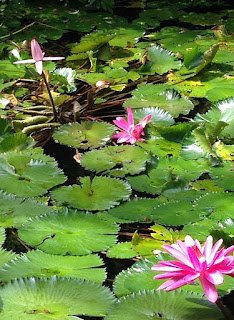Could the NDIS template be used to mitigate against climate change, regenerate our environment and build resilient communities?
 |
| Permacuture Ethics - Image by David Holmgren |
Just imagine providing insurance against the environmental degradation of the earth. Imagine people being paid by the government to support other people to look after the earth, to help them live sustainably. People who want support to live sustainably and be stewards for the earth, can receive support. Of course it isn’t a one size fits all institutional model, that different communities and households have different needs and resources and are at different stages of change. Now here is a deep dive into one future story from successes in the NEIS. It’s how our future success could be linked to the Earth's regeneration.
Note: Some names have been changed to protect the scheme's clients.
Let me introduce Scott. He's addicted to fossil fuels.
Scott never truly acknowledged his reliance on the energy from fossil fuels. He didn’t understand the damage it was doing to the earth, to his nation and to the communities that were experiencing climatic changes and catastrophes. That just one day a year where their house was unlivable was too much, that one day a year where their house is destroyed by flood, bushfire or cyclone is unacceptable. That year after year of drought will destroy a town and a region or a rising sea will flood a low lying island nation.
Scott was lucky because there were family and friends in his church community who realised the impact his addiction was having on them and they called for help. Scott’s church believed in a God that had created the earth, so out of respect for their God they thought it appropriate to look after God's creation. They called to the NEIS and asked for some funding to repair God’s creation. They were amazed at the support options that were available.
Scott realised that some behaviour change was necessary. He had recommended that several of his male colleagues seek counselling when they went through some traumas recently and had to undergo behavioural change. He had better do the same. It was only fair. So a psychologist was engaged who was skilled in the Transtheoretical Model of Change and Scott started moving through the steps of change required to become a sustainable human being on his God's creation.
Scotty received counselling for his addiction and was helped to create a plan to attend earth language school where regenerative farming and Permaculture Principles formed the basis of the curriculum. In addition, an energy support worker would visit his house to build a person-centred plan around his fossil fuel rehabilitation. The support worker was amazing. She helped Scott audit his house and lifestyle for carbon consumption, then created a yearly plan for ways to get to a zero carbon lifestyle in nine years. Seeing the long term goal and the steps to get there gave Scott hope for the future of his God’s creation.
He learnt the stages of change- from precontemplation to contemplation, planning then action, and finally maintenance. That there’d be some regression - nobody is perfect - Scott is realising this slowly. Learning that his existence will become his essence was empowering for someone who believed in a greater being having control of his life. Learning to act empowered Scotty to make some even bigger changes in his life. He wouldn’t share what these were so we’ll have to wait and see.
The money poured into the church. Amazed at the amount, the church decided that there was something in this Earth Care, People Care thing and made it a core part of their community. They realized that their God was a part of their culture but that the ecological and social pillars were more important than their moral construct. They were happy to continue meeting and worshiping but the activities changed to more grounded pursuits of edible gardening, trading produce and preserving passovers.
I hope you enjoyed reading about Scott and that he may inspire you to go zero carbon by 2030 too. There are more stories to come about people who have made the change to a zero carbon life and a world that is driven by quality nutritious local food.



Comments
Post a Comment